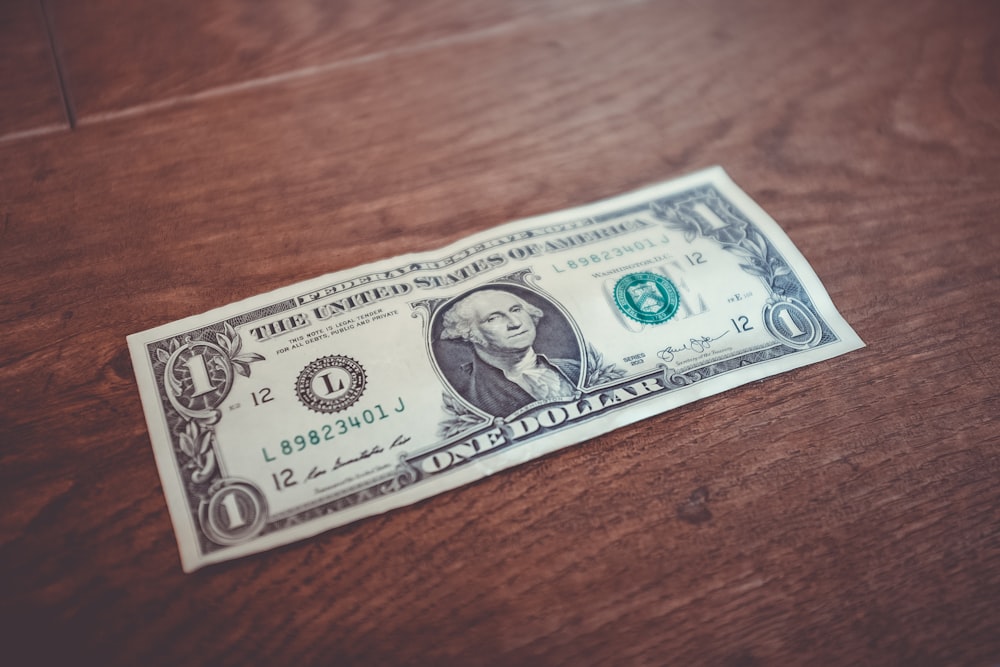Are you considering starting your own power washing business? Power washing, also known as pressure washing, offers a lucrative opportunity for entrepreneurs in various communities. Not only is there a high demand for pressure washing services, but the startup costs are relatively low compared to other businesses. If you’re ready to dive into this industry and learn how to start a power washing business, you’ve come to the right place. In this comprehensive guide, we’ll walk you through the essential steps to get your power washing company up and running.
Step 1: Study Your Potential Market
Before diving headfirst into any business venture, it’s crucial to conduct thorough market research. The power washing industry is a substantial business globally, currently valued at over $1.8 billion. This means that there is a significant potential customer base for your services. Many surfaces benefit from regular power washing, including buildings, porches, decks, sidewalks, driveways, pools, fences, and solar panels. It’s important to assess the demand for power washing services in your local area.
Start by researching the existing cleaning businesses in your community. Determine how many cleaning businesses already exist and what services they offer. This will help you identify if there is room in the market for another power washing business. Ask yourself the following questions to better understand your competition and differentiate your services:
- What do the existing businesses offer?
- What can you do differently or better within your power washing company?
- How do the other cleaners price their services?
- What does the other company’s business structure look like?
- Why would clients choose you instead?
Answering these questions will help guide you as you develop your power washing business plan and practices.
Step 2: Understand the Power Washing Industry
Before you dive into starting your power washing business, take a step back. It’s important to understand the industry inside out. This means looking at what services power washing businesses offer. Are they cleaning homes, driveways, or commercial buildings? See what’s in demand in your area.
Breaking Down Costs
Starting a business comes with costs. For a power washing business, these include:
- Equipment: This is likely your biggest cost. You’ll need a reliable pressure washer, hoses, nozzles, and safety equipment. Don’t forget maintenance costs too!
- Marketing: How will customers find you? Whether it’s flyers, online ads, or business cards, you’ll need to spread the word.
- Insurance: Protect yourself and your business with the right insurance. This can include liability and equipment insurance.
- Travel: You’ll need to get to your clients, so factor in vehicle and fuel costs.
Setting Your Prices
Now, think about how much you’ll charge. Look at what others are charging in your area. Remember, you need to cover your costs and still make a profit. Pricing can vary based on the job’s size and difficulty.
Estimating Jobs and Revenue
Think about how many jobs you can do in a week. Be realistic. How many hours does each job take? How much travel time is needed? This will help you figure out your potential earnings. Here’s what to consider:
- Service Types: Different services might cost more. Roof cleaning could be pricier than driveway cleaning, for example.
- Frequency: Will you offer one-time cleans or ongoing services? Regular clients can provide steady income.
Calculating Profitability
Once you have your potential earnings and costs, do the math. Subtract your expenses from your income. This number is your profit. Is it enough? Remember, it might take time to build up your business.
Understanding the power washing industry is key to your business’s success. Know your costs, set fair prices, and estimate your earnings realistically. This will help you see if your power washing business can make money. Always keep an eye on your finances and adjust as needed. With the right planning, your power washing business can be a hit in 2024.
Step 3: Establish a Legal Business
Before you can start gathering customers, you need to establish a legal business. This involves several steps, including naming your business, obtaining the necessary licenses, and acquiring business insurance.
Naming your business
Choose a name for your business that is easy to spell, unique, and descriptive. Ensure that no other business has the same name and consider getting feedback from others on the name. A catchy and memorable name can help attract customers to your power washing services.
Get all necessary paperwork in order
To operate legally, you’ll need to obtain the required licenses and permits. The specific licensure requirements vary depending on your location, so check with your local small business administration for the most up-to-date information. Additionally, choose an appropriate business structure (such as a sole proprietorship, LLC, or corporation) and apply for an Employer Identification Number (EIN) from the IRS. You’ll also need to acquire business insurance, including general liability, equipment, and property insurance.
Open a business bank account
Separating your personal and business finances is crucial for legal and tax purposes. Open a business bank account to handle all your business finances. Some banks offer special benefits for business accounts, so be sure to ask about any available options when setting up your account.
Step 4: Acquire the Needed Equipment
Your equipment is the backbone of your power washing business. Here’s what you need to think about:
- Pressure Washers: Pick one that fits the jobs you’ll do. Residential jobs might need a less powerful washer than commercial jobs. Look for washers that are durable and easy to repair.
- Hoses and Nozzles: Get different lengths and strengths of hoses. You’ll also need various nozzles for different types of jobs.
- Pumps and Cleaners: High-quality pumps improve efficiency. Also, choose the right cleaning solutions for different surfaces.
Investing in quality equipment means fewer breakdowns and better results. This can lead to happier customers and more repeat business.
Uniforms for a Professional Look
Uniforms make your team look professional. This helps build trust with your customers. Here’s what to consider:
- Design: Include your logo and business colors.
- Comfort: Choose materials that are comfortable and suitable for outdoor work.
- Durability: Your uniforms should withstand frequent washing and harsh cleaning conditions.
A professional appearance sets you apart from competitors and can help attract more business.
Transporting Your Equipment
A reliable vehicle is essential for a power washing business. You need to transport your equipment safely and efficiently. Here’s what to look for:
- Size: Make sure the vehicle can fit all your equipment.
- Reliability: Choose a vehicle known for its reliability to avoid breakdowns between jobs.
- Fuel Efficiency: Consider fuel costs, as you’ll be traveling a lot.
Whether you buy or lease, a good vehicle ensures that you can get to your clients without issues.
Budgeting Your Initial Investment
Starting a power washing business requires an upfront investment. This might include:
- Equipment Costs: Quality pressure washing equipment can be expensive, but it’s worth the investment.
- Vehicle: Whether you buy or lease, this will be a significant part of your initial costs.
- Marketing and Insurance: Don’t forget to factor in these essential expenses.
To save money, consider buying used equipment. But make sure it’s in good working condition. Check online marketplaces, local classifieds, or auctions for deals.
Acquiring the right equipment is a big step in starting your power washing business. Choose wisely to ensure efficiency, reliability, and professionalism. Remember, your equipment and vehicle are the foundations of your business. A solid investment here sets the stage for future success.
Step 5: Set Up Your Company’s Fee Structure
Before setting your prices, research what other power washing businesses charge. Look at both residential and commercial rates in your area. This gives you a baseline. Remember, your rates should reflect the quality of your services. Don’t sell yourself short, but stay competitive.
Types of Pricing Models
There are different ways to price your services. You can charge by the hour, by the square foot, or set a flat rate for specific jobs. Here’s what to consider:
- Hourly Rates: Good for jobs where the time to complete can vary.
- Square Footage: Common for large, straightforward areas like driveways or decks.
- Flat Rates: Best for jobs that are similar each time, like standard home exteriors.
Factoring in Job Difficulty
Not all cleaning jobs are equal. Some might be quick and easy, while others are tough and time-consuming. Consider the following:
- Surface Type: Delicate surfaces need more care, which can take more time.
- Dirt Level: Heavily soiled areas require more effort and resources.
- Accessibility: Hard-to-reach places might need special equipment.
Charge more for jobs that are more challenging. This compensates for the extra time and effort required.
Covering Your Costs
Your fees must cover more than just the time spent spraying water. Consider all your costs:
- Equipment: Maintenance, repairs, and replacements.
- Supplies: Cleaning solutions, fuel, and other consumables.
- Insurance: Protects your business from liability and accidents.
- Labor: Pay yourself and your employees a fair wage.
Make sure your prices cover these costs while still allowing for profit.
Setting Profit Margins
Decide how much profit you need to make to keep your business healthy. A good profit margin ensures your business can grow and handle unexpected expenses. It also rewards you for your hard work.
Adjusting Prices Over Time
Your initial prices might not be perfect. That’s okay. Here’s what to keep in mind:
- Feedback: Listen to what customers say about your prices.
- Cost Changes: If your expenses go up, your prices might need to as well.
- Experience: As you become more skilled, you can charge more for your expertise.
Don’t be afraid to adjust your prices as your business grows and changes.
Step 6: Market Your Business
To attract customers to your power washing business, you need to effectively market your services. Since power washing is a local business, focus your marketing efforts on your local community. Here are some effective marketing strategies:
- Provide excellent service: Word-of-mouth recommendations from satisfied customers can be a powerful marketing tool. Ensure that you consistently deliver high-quality work to leave a lasting impression on your customers.
- Utilize Nextdoor: Claim your free business page on Nextdoor, a hyper-local social networking platform, to connect with your neighbors and promote your services. Nextdoor offers advertising options and allows you to engage directly with potential customers through Business Posts.
- Build an online presence: Create a professional website and social media accounts for your power washing business. Showcase your before-and-after work, share customer testimonials, and provide valuable information about your services. Consider creating video content to demonstrate the power washing process and its effectiveness.
- Run local ads: Consider setting up a Google My Business account to list your services, location, and contact information. Invest in online advertising platforms like Google Ads and Facebook Ads to target your local community.
- Network with local businesses: Reach out to real estate agents, contractors, homeowners associations, and other businesses that could benefit from your power washing services. Establish partnerships and offer your services at a reduced rate to gain exposure and referrals.
Step 7: Look for Partnerships in Your Local Community
Teaming up with local businesses can really help your power washing business grow. Think about businesses that complement yours. Real estate agents, contractors, rental companies, and painting companies are great examples. These businesses often need power washing services for their properties or projects. By partnering with them, you can get more customers.
Using Nextdoor to Connect
Nextdoor is a platform that lets you connect with your local community online. It’s a great place to meet other business owners. You can use it to introduce your services and discuss partnership opportunities. Being active on Nextdoor can also increase your visibility in the community.
Creating Referral Programs
One way to strengthen partnerships is through referral programs. Offer incentives for businesses that refer clients to you. For example, you could give them a discount on your services or a commission for each referral. This encourages them to recommend your business.
Benefits of Partnerships
Collaborating with other businesses has many benefits. It can lead to a steady stream of clients. It also builds your reputation in the community. Plus, it’s a cost-effective way to market your business.
How to Approach Potential Partners
When reaching out to potential partners, be professional and clear about what you offer. Show them how partnering with you can benefit their business. Be open to their ideas and feedback. Building a strong partnership takes time and communication.
Looking for partnerships in your local community can be a game-changer for your power washing business. It helps you reach more customers and build your network. Remember, successful partnerships are about give and take. Offer value to your partners and they will do the same for you.
Step 8: Learn from the Power Washing Pros
In the dynamic world of power washing, staying informed and up-to-date is crucial for maintaining a competitive edge. Just like in any other field, the power washing industry is always evolving, with new techniques, tools, and standards emerging regularly. To ensure your business remains at the forefront, you need to commit to continual learning and professional development.
Embracing Online Resources
The internet is a treasure trove of information, with countless tutorials, instructional videos, and forums dedicated to power washing. These resources can provide you with a deeper understanding of the latest equipment, cleaning solutions, and methods. By dedicating time each week to explore these online materials, you can refine your skills and improve your services.
Joining Industry Associations
Being part of a professional organization offers numerous benefits. Associations like the United Association of Mobile Contract Cleaners, Pressure Washing Resource Association, and Power Washers of North America are specifically tailored to individuals in the power washing field. Membership in these groups can provide you with access to exclusive resources, such as training programs, industry publications, and networking events. These platforms are invaluable for learning from experienced professionals and staying abreast of industry developments.
Networking with Industry Professionals
Building relationships with other power washing professionals can lead to new insights and opportunities. Networking allows you to share experiences, ask questions, and receive advice from those who have been in the business longer. Whether through association meetings, conferences, or online forums, engaging with your peers can open doors to new techniques and business strategies.
The Importance of Continual Learning
In an industry where standards and technologies are constantly changing, being complacent can lead to obsolescence. By continually seeking knowledge and staying connected with the power washing community, you ensure that your business remains relevant and competitive. This commitment to learning not only enhances the quality of your services but also positions you as a knowledgeable and trustworthy service provider in the eyes of your clients.
In conclusion, the path to becoming a power washing pro is paved with ongoing education and networking. By leveraging online resources, joining industry associations, and connecting with fellow professionals, you can stay ahead of the curve and lead your business to sustained success. Remember, in the fast-paced world of power washing, knowledge is not just power—it’s profitability.
Step 9: Follow Customer-Friendly Policies
Providing excellent customer service is crucial for the growth and success of your power washing business. Implement customer-friendly policies such as easy scheduling, high-quality work, referral incentives, and prompt response to customer feedback. Networking with other local businesses and maintaining positive relationships can also contribute to customer satisfaction and retention.
FAQ Section: Starting a Power Washing Business
Is a power washing business profitable?
Yes, a power washing business can be profitable. Profit depends on your location, services, and client base. Many properties need regular cleaning, offering steady income potential. But, profits vary based on operating costs and competition.
How do I start a pressure washing business from scratch?
To start, research the market and legal requirements. Create a business plan. Get the necessary permits and insurance. Buy the right equipment. Set your prices and market your services to attract customers.
What equipment do you need to start a power washing business?
You’ll need a professional pressure washer, nozzles, hoses, and safety gear. Consider additional equipment like surface cleaners and chemicals for different jobs. A reliable vehicle to transport your equipment is also essential.
What do you need to start a pressure washing business?
Besides equipment, you need business registration, insurance, and possibly a contractor’s license. Develop a pricing strategy and marketing plan. Knowledge of cleaning techniques and chemicals is also important.
Do you use customers’ water when pressure washing?
Typically, yes. Most power washing businesses use the customer’s water supply. Include this in your service agreement. If water access is an issue, consider bringing your own water tank.
How much is a pressure washer?
Prices vary based on size and power. A commercial-grade pressure washer can cost between $1,000 to $3,000. Research and choose one that fits your budget and job requirements.
Is starting a pressure washing business hard?
Starting any business can be challenging. Success in pressure washing requires hard work, proper planning, and effective marketing. But with the right approach, it’s a feasible and rewarding venture.
What is the best business type for pressure washing?
Many start as sole proprietorships or LLCs (Limited Liability Companies). LLCs offer personal asset protection and are popular among small businesses. Choose the structure that best suits your financial and legal needs.
What are the cons of starting a pressure washing business?
Cons include the initial equipment cost, physical demands, and seasonal work in some areas. You also face competition and the challenge of building a customer base. Proper planning and marketing can help overcome these obstacles.
Featured Image Credit: Photo by nick Kaufman; Unsplash – Thank you!
































